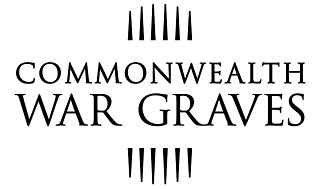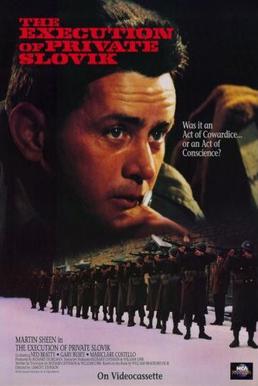
A prisoner of war (POW) is a person who is held captive by a belligerent power during or immediately after an armed conflict. The earliest recorded usage of the phrase "prisoner of war" dates back to 1610.
A court-martial or court martial is a military court or a trial conducted in such a court. A court-martial is empowered to determine the guilt of members of the armed forces subject to military law, and, if the defendant is found guilty, to decide upon punishment. In addition, courts-martial may be used to try prisoners of war for war crimes. The Geneva Conventions require that POWs who are on trial for war crimes be subject to the same procedures as would be the holding military's own forces. Finally, courts-martial can be convened for other purposes, such as dealing with violations of martial law, and can involve civilian defendants.

Edward Donald Slovik was a United States Army soldier during World War II and the only American soldier to be court-martialled and executed for desertion since the American Civil War. Although over 21,000 American soldiers were given varying sentences for desertion during World War II, including 49 death sentences, Slovik's death sentence was the only one that was carried out.

Execution by firing squad, in the past sometimes called fusillading, is a method of capital punishment, particularly common in the military and in times of war. Some reasons for its use are that firearms are usually readily available and a gunshot to a vital organ, such as the brain or heart, most often will kill relatively quickly.

Opposition to the Iraq War significantly occurred worldwide, both before and during the initial 2003 invasion of Iraq by a United States–led coalition, and throughout the subsequent occupation. Individuals and groups opposing the war include the governments of many nations which did not take part in the invasion, including both its land neighbors Canada and Mexico, its NATO allies in Europe such as France and Germany, as well as China and Indonesia in Asia, and significant sections of the populace in those that took part in the invasion. Opposition to the war was also widespread domestically.

The Commonwealth War Graves Commission (CWGC) is an intergovernmental organisation of six independent member states whose principal function is to mark, record and maintain the graves and places of commemoration of Commonwealth of Nations military service members who died in the two World Wars. The commission is also responsible for commemorating Commonwealth civilians who died as a result of enemy action during the Second World War. The commission was founded by Sir Fabian Ware and constituted through Royal Charter in 1917 as the Imperial War Graves Commission. The change to the present name took place in 1960.

Desertion is the abandonment of a military duty or post without permission and is done with the intention of not returning. This contrasts with unauthorized absence (UA) or absence without leave, which are temporary forms of absence.

The Italian campaign of World War II, also called the Liberation of Italy following the German occupation in September 1943, consisted of Allied and Axis operations in and around Italy, from 1943 to 1945. The joint Allied Forces Headquarters (AFHQ) was operationally responsible for all Allied land forces in the Mediterranean theatre and it planned and led the invasion of Sicily in July 1943, followed in September by the invasion of the Italian mainland and the campaign in Italy until the surrender of the German Armed Forces in Italy in May 1945.
Capital punishment in Canada dates back to Canada's earliest history, including its period as a French colony and, after 1763, its time as a British colony. From 1867 to the elimination of the death penalty for murder on July 26, 1976, 1,481 people had been sentenced to death, and 710 had been executed. Of those executed, 697 were men and 13 were women. The only method used in Canada for capital punishment of civilians after the end of the French regime was hanging. The last execution in Canada was the double hanging of Arthur Lucas and Ronald Turpin on December 11, 1962, at Toronto's Don Jail. The military prescribed firing squad as the method of execution until 1999, although no military executions had been carried out since 1946.

2 Intelligence Company is a Canadian Armed Forces Primary Reserve Intelligence Branch unit based in Toronto, headquartered at Denison Armoury. It is part of the 4th Canadian Division. The Intelligence Officers and Operators of the unit reside in the Greater Toronto Area, work as professionals in the business community and are also active in numerous community service organizations. They deploy on domestic and foreign operations, and are primarily responsible for tactical, or combat intelligence. Recent deployments include to Cyprus, Bosnia, Afghanistan, Kuwait, and Canada.

Omar Ahmed Said Khadr is a Canadian who at the age of 15 was detained by the United States at Guantanamo Bay for ten years, during which he pleaded guilty to the murder of U.S. Army Sergeant 1st Class Christopher Speer and other charges. He later appealed his conviction, claiming that he falsely pleaded guilty so that he could return to Canada where he remained in custody for three additional years. Khadr sued the Canadian government for infringing his rights under the Charter of Rights and Freedoms; this lawsuit was settled in 2017 with a CA$10.5 million payment and an apology by the federal government.

The Execution of Private Slovik is a nonfiction book by William Bradford Huie, published in 1954, and an American television movie that aired on NBC on March 13, 1974. The film was written for the screen by Richard Levinson, William Link, and director Lamont Johnson; the film stars Martin Sheen, and also features Charlie Sheen in his second film in a small role.

Execution is a 1958 war novel by Canadian novelist and Second World War veteran Colin McDougall (1917–1984). Although it won McDougall the 1958 Governor General's Award for English-language fiction, it was his only novel, and after publishing it to wide acclaim he retreated into a quiet life as Registrar of McGill University in Montreal. Nevertheless, Execution stands with Timothy Findley's The Wars and Hugh MacLennan's Barometer Rising as one of the most widely read and studied Canadian war novels of the twentieth century.
Colin Malcolm McDougall (1917–1984) was a Canadian author best known for his 1958 Governor General's Award-winning novel Execution.

In the practice of international law, command responsibility is the legal doctrine of hierarchical accountability for war crimes, whereby a commanding officer (military) and a superior officer (civil) is legally responsible for the war crimes and the crimes against humanity committed by his subordinates; thus, a commanding officer always is accountable for the acts of commission and the acts of omission of his soldiers.
Harold Joseph Pringle was the only soldier of the Canadian Army to be executed during the Second World War.
Canadian official war artists create an artistic rendering of war through the media of visual, digital installations, film, poetry, choreography, music, etc., by showing its impact as men and women are shown waiting, preparing, fighting, suffering, celebrating. These traditionally were a select group of artists who were employed on contract, or commissioned to produce specific works during the First World War, the Second World War and select military actions in the post-war period. The four Canadian official war art programs are: the First World War Canadian War Memorials Fund (CWMF), the Second World War Canadian War Records (CWR), the Cold War Canadian Armed Forces Civilian Artists Program (CAFCAP), and the current Canadian Forces Artists Program (CFAP).
This is a bibliography of works on the military history of Canada.

Tim Cook is a Canadian military historian and author. Cook is an historian at the Canadian War Museum and the author of thirteen books about the military history of Canada. Having written extensively about World War I, Cook's focus shifted to Canada's involvement in World War II with the 2014 publication of the first volume in a two-volume series chronicling Canada's role in that war. He is a two-time recipient of the C.P. Stacey Prize, a two-time recipient of the J.W. Dafoe Book Prize, and a three-time winner of the Ottawa Book Prize. He was elected to the Royal Society of Canada in 2019. He is a member of the Order of Canada.













